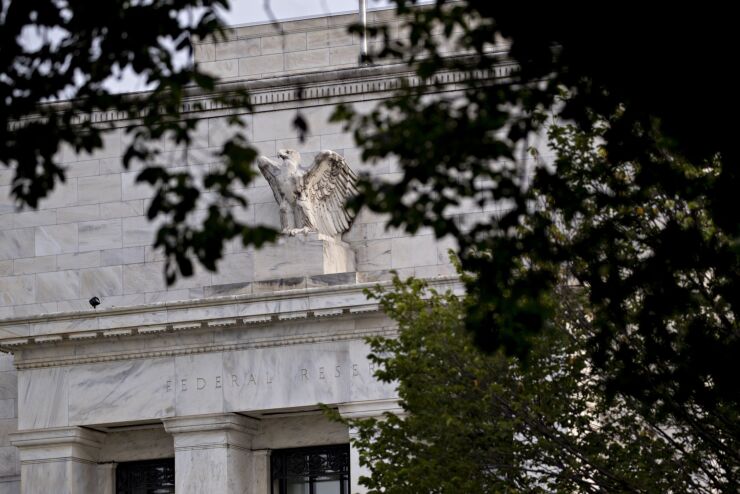WASHINGTON — The Federal Reserve and Federal Deposit Insurance Corp. identified shortcomings in six of the eight resolution plans submitted by the largest U.S. banks, the agencies said Tuesday.
The two agencies, which under the Dodd-Frank Act are required to review large banks' living wills, said the eight global systemically important banks did not show "deficiencies" in their plans.
But while "shortcomings" are less severe than deficiencies, they still “raise questions about the feasibility of a firm’s plan,” the Fed and the FDIC said Tuesday in a release.
The regulators found shortcomings in the living wills submitted by Bank of America, Bank of New York Mellon, Citigroup, Morgan Stanley, State Street and Wells Fargo. Those shortcomings were related to the banks’ inability to produce the data to execute their resolution strategy in the event of financial stress.

"Examples include measures of capital and liquidity at relevant subsidiaries," the agencies said in their press release.
Those six banks will need to submit plans on how they plan to address the issues raised by the regulators by March 31.
The Fed and the FDIC did not identify any deficiencies or shortcomings in the living wills submitted by Goldman Sachs and JPMorgan Chase.
All eight banks received a feedback letter, which notes “that each firm made significant progress in enhancing its resolvability and developing resolution-related capabilities but all firms will need to continue to make progress in certain areas,” the agencies said.
The Fed and the FDIC also said that Bank of America, Goldman Sachs, Morgan Stanley and Wells Fargo all successfully addressed shortcomings identified in the 2017 review of their resolution plans.





